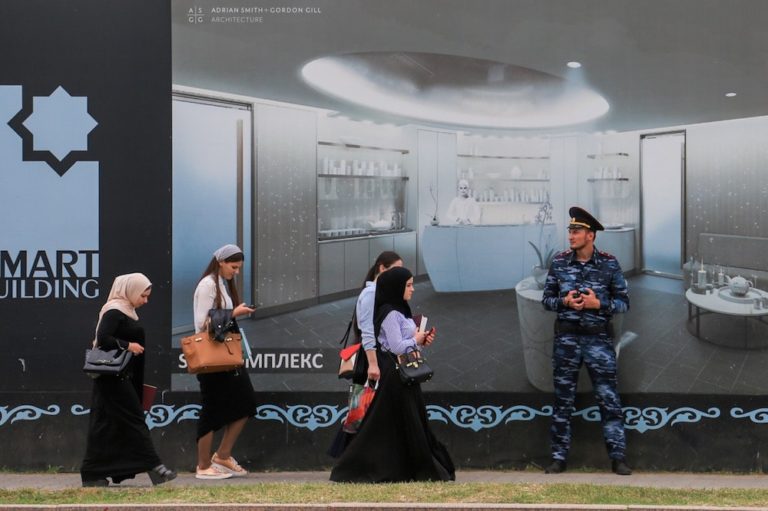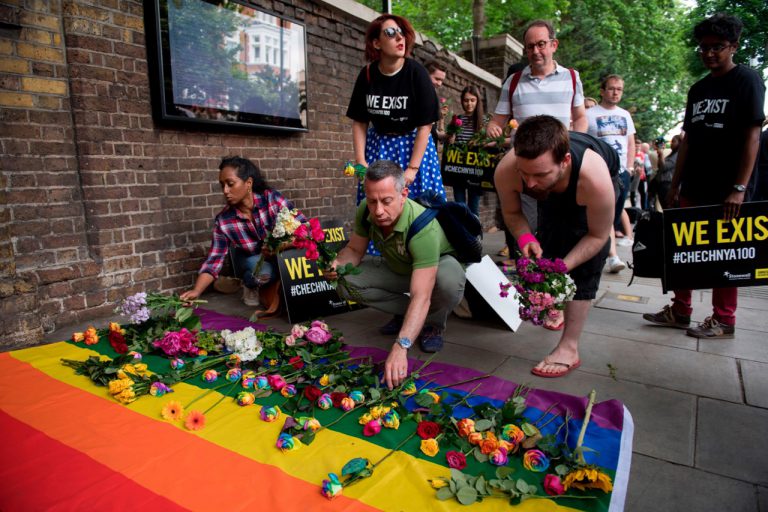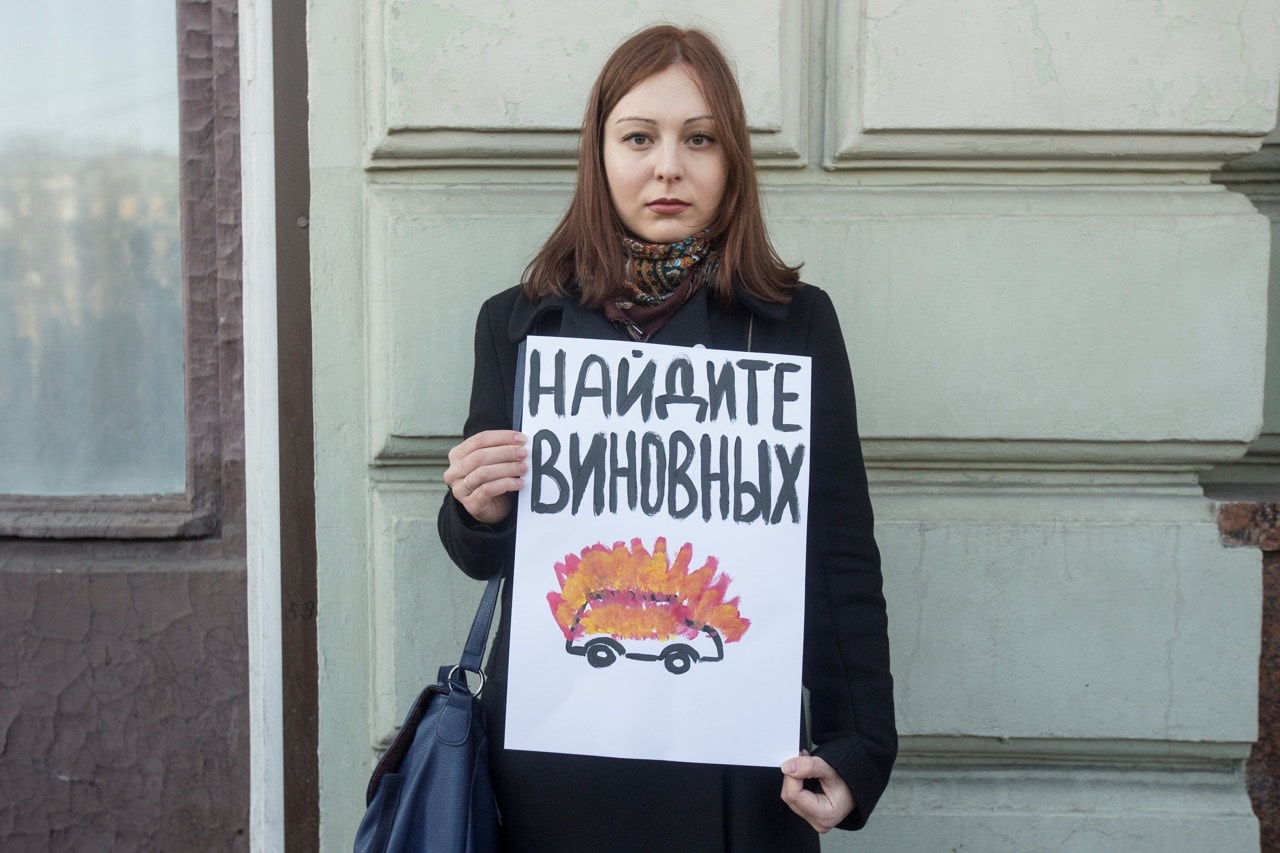(RSF/IFEX) – On 9 January 2003, RSF protested Russia’s expulsion of prominent German writer and freelance investigative journalist Günter Wallraff, who had travelled to Russia to prepare an article about human rights in Chechnya. Wallraff and two German companions were turned back upon their arrival at Moscow airport on 7 January. “By preventing journalists from […]
(RSF/IFEX) – On 9 January 2003, RSF protested Russia’s expulsion of prominent German writer and freelance investigative journalist Günter Wallraff, who had travelled to Russia to prepare an article about human rights in Chechnya. Wallraff and two German companions were turned back upon their arrival at Moscow airport on 7 January.
“By preventing journalists from going to Chechnya to do their work, the Russian authorities have again demonstrated that they have something to hide,” RSF Secretary-General Robert Ménard said in a letter to Russian Foreign Minister Igor Ivanov. “We denounce this censorship and demand that journalists be able to cover the war in Chechnya without having to submit to such administrative obstacles,” Ménard said, while asking that Wallraff be allowed to work freely in Russia.
Wallraff became famous in the 1980s for posing as a Turkish worker in Germany, an experience on which he based a book and a film. The two fellow Germans who accompanied him to Moscow were Norbert Bluem, a former Christian Democrat labour minister, and Rupert Neudeck, head of the relief organisation Cap Anamur. Wallraff was to have met in Moscow with the leader of the Kremlin-appointed Chechen administration, Akhmad Kadyrov, before going to Ingushetia to investigate the situation of Chechen refugees. He had also intended to try to enter Chechnya.
Upon his arrival in Moscow, Wallraff was taken to see a Foreign Ministry official at the airport, who cancelled his tourist visa. He was then sent back to Germany on the same plane, without being allowed to contact the German embassy in Moscow. The Russian Foreign Ministry said it had concluded from an interview with Wallraff published by “Stern” magazine on 2 January that he planned to find evidence of human rights violations in Chechnya and then launch “a new campaign against Russia in the German news media.”
Wallraff told RSF that he made the mistake of publishing several articles before leaving for Russia in which he criticised the Russian authorities and announced his intention to investigate the human rights and humanitarian situation in Chechnya, though he was travelling to Russia on a tourist visa. He said, “Journalists are often forced to used unofficial and indirect means to investigate human rights abuses. The Russian authorities are very good at hiding information about violations and know how to ensure that only their viewpoint gets out in the news media. So it is becoming harder and harder for human rights activists to make themselves heard.”
The obstacles to free information on the war in Chechnya became official on 1 October 1999 when journalists were banned from travelling freely in the region. Since June 2001, accredited journalists have not been allowed to travel within Chechnya without an Interior Ministry escort. In October 2002, a ministerial decision further reduced the capacity for war coverage in Chechnya by specifying territories, organisations and institutions, including “zones where anti-terrorist operations are under way”, to which foreigners are denied access without special permission. The directive neither specified how such a permission to enter Chechen territory could be obtained nor how long it would be valid.
Journalists with Russia’s state-owned media have been forced to adapt to the blackout imposed by the army, while the independent news media and foreign journalists no longer have access to Chechnya, in practice. Anna Politkovskaya, a journalist with the daily “Novaya Gazeta”, was arrested by the Russian military in the Shatoy region of southern Chechnya in February 2002 for “violating the regulations in force for journalists”. She managed to escape after being escorted to a local military base, from where she was to have been expelled.
In August, Russian soldiers seized the accreditation and equipment of journalists working for the state-owned television stations ORT and TV Tsenter on the grounds that they were not accompanied by a Russian army representative while questioning Chechens fleeing a village where Russian troops were carrying out a “mopping-up operation” (see IFEX alert of 21 August 2002). In November, Russian security forces confiscated the footage of Chechen refugees which Hans-Wilhelm Steinfeld, the Moscow correspondent for the Norwegian public television station NRK, had just shot (see alerts of 25 and 22 November 2002).
The Russian authorities pursue a policy aimed at co-opting the news media and restricting press freedom. This was particular evident when Chechen rebels took 700 persons hostage in a Moscow theatre from 23 to 26 October. Several news media, both Russian and foreign, were heavily criticised for their coverage and the Duma passed an anti-terrorist law that would have allowed the authorities to prosecute any journalist covering subjects linked to terrorism and the war in Chechnya. President Putin vetoed the bill (see alerts of 27, 14, 6 and 4 November and 28 October 2002).
In a 13 November letter to Fritz Pleitgen, chairman of the German state-owned television network ARD, the Russian authorities said they had found the German news media’s coverage of the hostage-taking to have been “shocking, utterly intolerable and deplorable for a public institution,” and questioned their future cooperation with ARD (see alert of 25 November 2002).


